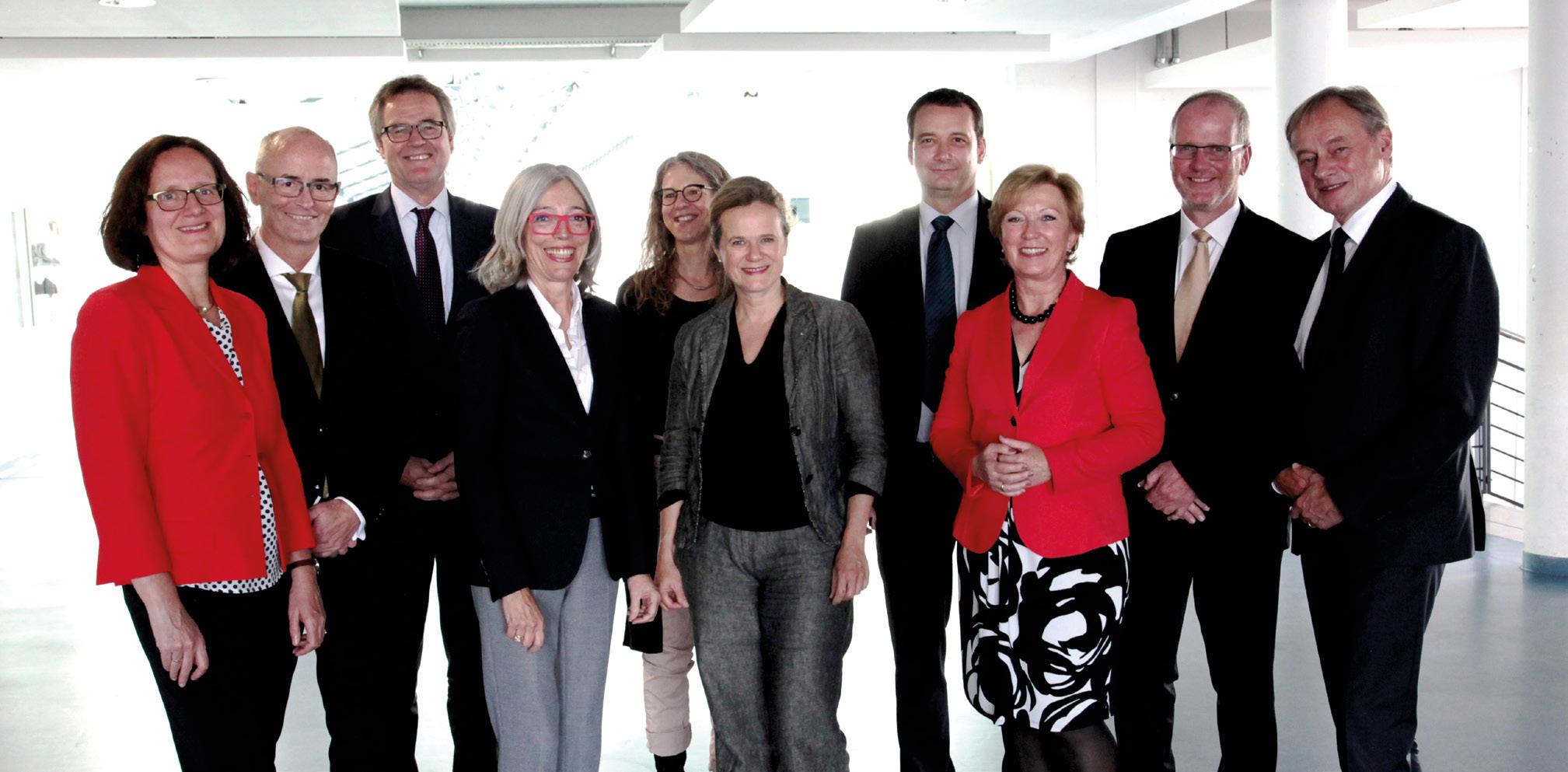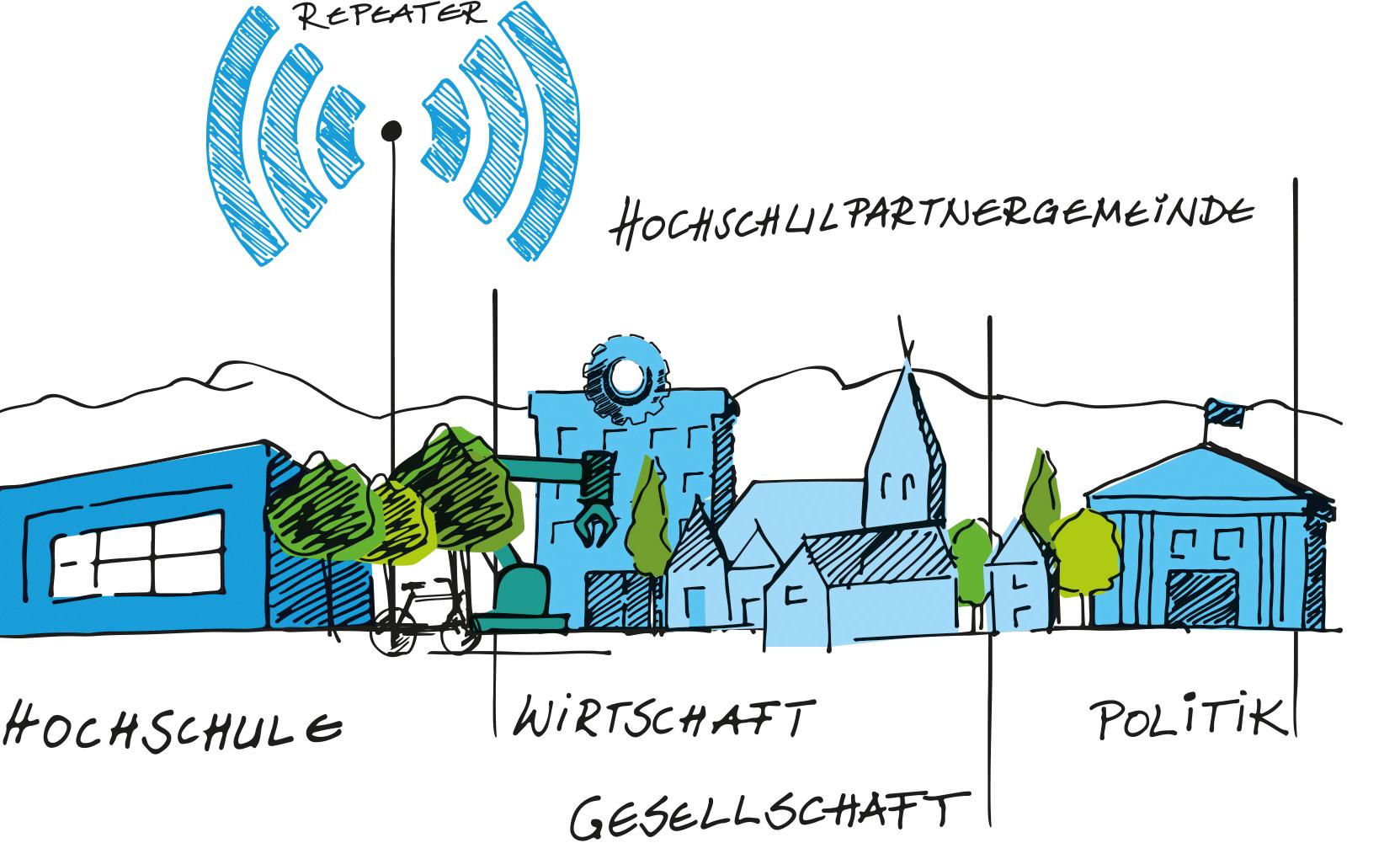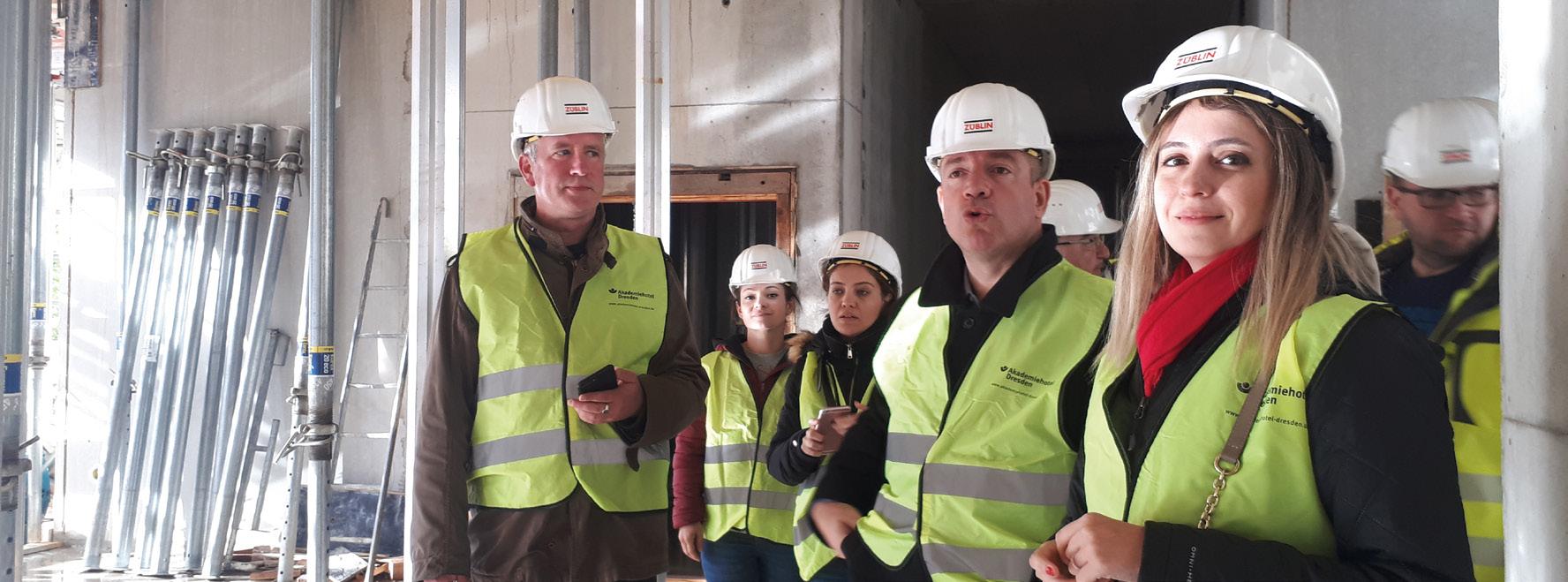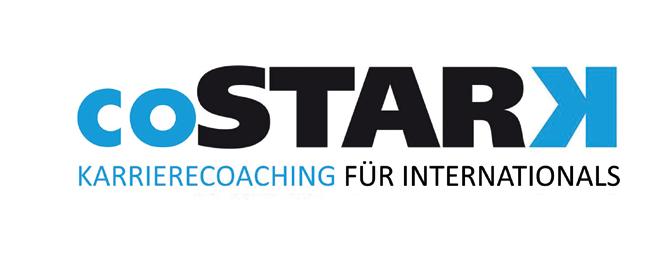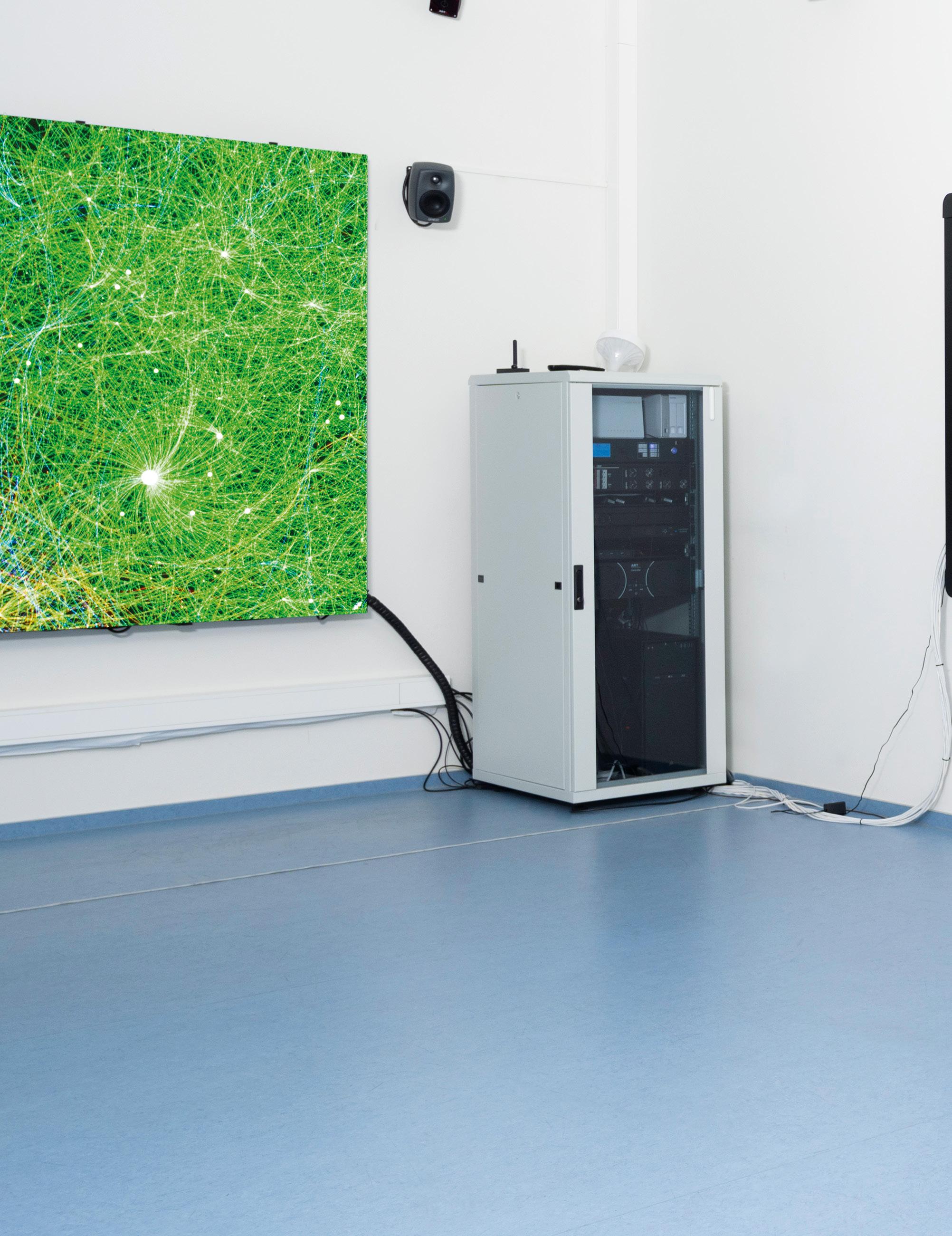
5 minute read
Making research visible: banner campaign with doctoral students
More information: www.h-brs.de/news/ promotion-fuer-diepromovierenden-der-h-brs
www.h-brs.de/en/gi/ our-phd-students
Making research visible
Banner campaign with doctoral students
The right to award doctorates at universities of applied sciences is hotly debated throughout Germany. NRW‘s new higher education law stipulates, among other things, that the Graduate Institute NRW is to be developed into a doctoral college. High visibility of the topic is crucial for the political process.
The doctoral students at Hochschule Bonn-Rhein-Sieg can no longer be overlooked. “In research, I‘m a tough guy; I reconstruct bones.” Sayings like this one, which introduces the doctoral student Patrick Ottensmeyer and his research project on the treatment of large human bone defects, can be read on oversized banners decorating the university campuses of Sankt Augustin and Rheinbach. Other doctoral students also draw attention to their research projects with creative slogans. “There are still students who don‘t know that you can earn a doctorate with us. We want to change that with the posters. But we also want our guests to see that we have a lot of brilliant minds here”, explains Dr Barbara Hillen, scientific advisor at the university‘s own Graduate Institute. She developed the campaign in cooperation with the university communications department. “Doctoral students should also learn to explain highly complex interrelationships in an understandable way and demonstrate their relevance to application”, says Hillen.
Response to the posters is positive. “Our doctoral candidates are increasingly being approached by students about their PhD dissertations. It‘s nice to see that the campaign awakens interest in our research”, says Professor Rainer Herpers, head of the university‘s Graduate Institute. Fortunately, the topic is finally gaining political momentum as a result of the new higher education law.
Daily academic life needs to be learned
Doctoral students are supported on their path to science by corresponding qualification modules at the university‘s Graduate Institute. These range from soft skills to information about the pitfalls of daily academic life, such as so-called predatory publishing. This is an inferior form of publishing service that is offered without quality checks for publication fees under the pretext of open access. “We also attach great importance to the discussion of ethical questions in research. What is permitted in the name of research? Where are the limits?”, explains Herpers. Such discussions are particularly useful at the annual PhD Day. “During the day, there’s a good working atmosphere to provide specialist input, and in the evening, the doctoral students can network. It’s an event from which everyone benefits”, says Herpers.
57
Paving the way – into the region and the world
Part of Hochschule Bonn-Rhein-Sieg‘s self-image has always been to strengthen regional structural change – by training future professionals and decision-makers for a global labour market, through internationally networked research, and through its “third mission”, with which it assumes responsibility for the economy and society in a wide range of cooperation projects. Thus in 2019, we entered into an expanded strategic cooperation with authorities and companies. In the flourishing Center of Applied Research, the first effects of joint work are noticeable and pave the way to a Science Campus. In the “Campus to World” project, the transfer takes on a variety of forms. The showrooms are well received by industry partners and civil society. The CitizenLab offerings reach a broad public, and the Responsibility Forum has established itself as a platform for dialogue. Last but not least, H-BRS also provides tailormade solutions for rural areas. In its international profile, H-BRS is taking on a new challenge of immense importance: cooperation with China. The region has evolved from a developing country to a technological leader in important future-oriented industries. Know-how transfer is increasingly taking place in both directions, and cooperation on equal terms is becoming more and more important in science and business. In their decades of professional activity, our graduates will be allowed and obliged to work with China and with Chinese people – we want to prepare them for this. On a trip to South China, the President’s Office was impressed by the innovative power and speed. But there is still a lack of thoroughness and orientation towards Western needs and values. We can contribute these and are therefore highly welcomed by our partners. The question is not whether we cooperate, but in what way we make cooperation fruitful for ourselves and our society.
Prof. Dr Jürgen Bode
Dr Udo Scheuer
The leadership team of the Innovation Campus Bonn: Professor Jakob Rhyner, Scientific Director, and Sandra Gilgan, Managing Director
Unique science hub
The Innovation Campus Bonn is a new type of science centre with a focus on sustainability research
Three research focuses
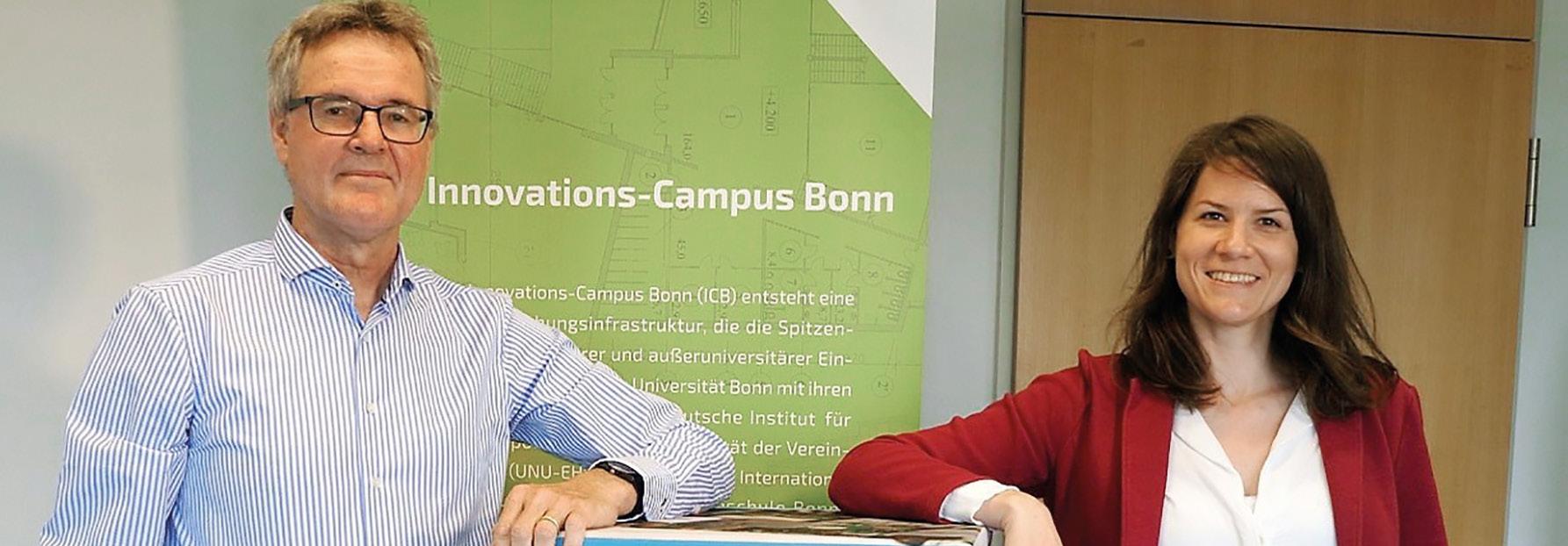
Hochschule Bonn-Rhein-Sieg has been focusing its attention on the topic of sustainability in all its facets for some time now. With the creation of the Innovation Campus Bonn (ICB) in June 2019, the foundation stone was laid for the city of Bonn itself to become one of the world‘s leading locations for sustainability research. The ICB is a research centre that aims to bundle the expertise in sustainability research already available in the region and, with new building blocks, to form a unique science hub.
The ICB is supported by the Bonn Alliance for Sustainability Research, founded at the UN Climate Change Conference 2017 and comprised of six scientific institutes and higher education institutes: the Bonn International Center for Conversion (BICC), the German Development Institute (DIE), the United Nations University – Institute for Environment and Human Security (UNU-EHS), the Center for Development Research at the University of Bonn (ZEF) and Hochschule Bonn-Rhein-Sieg University of Applied Sciences with its International Centre for Sustainable Development (IZNE). Special feature of the ICB is the interdisciplinary cooperation. “The Innovation Campus Bonn is a platform for macrosocial work on a sustainable future. Actors from various backgrounds are invited to use their perspectives and their expert knowledge to work together on their ideas on sustainability issues.”, says the Bonn Alliance for Sustainability Research website. University President Hartmut Ihne and Professor Katja Bender, Director of the IZNE, represent H-BRS on the Bonn Alliance Council and thus cooperate on strategically shaping the work of the Innovation Campus Bonn.
The ICB‘s initial three research focuses are digitalisation and artificial intelligence, mobility and migration, and bioeconomy. “The ICB deals with important challenges of our present and future – from the upheavals of digitalisation, poverty reduction, social security and health to the pressing issues of the global climate”, summarises Ihne.
More information: www.bonnalliance-icb.de/en/


